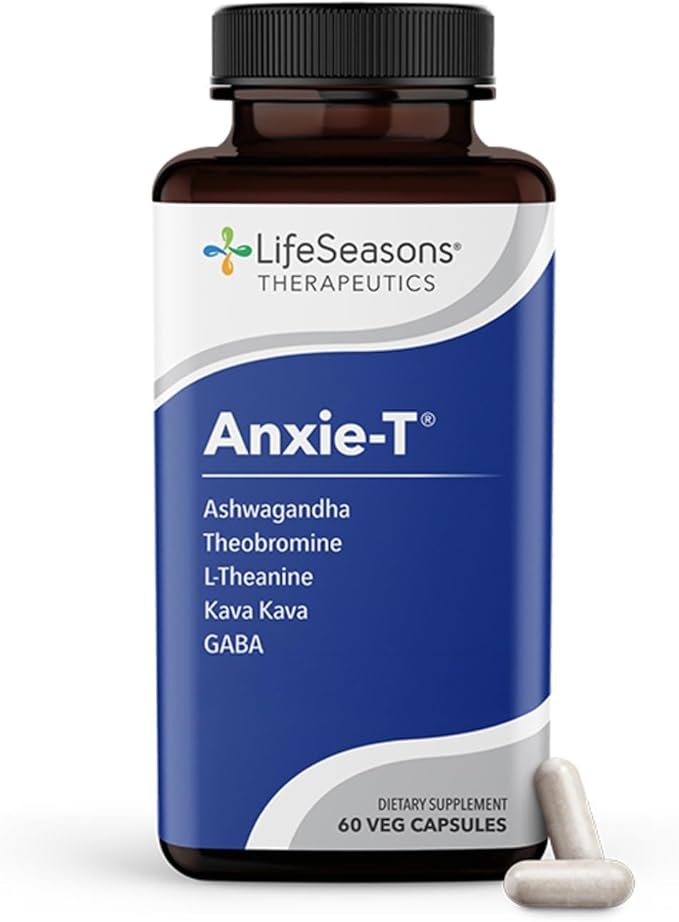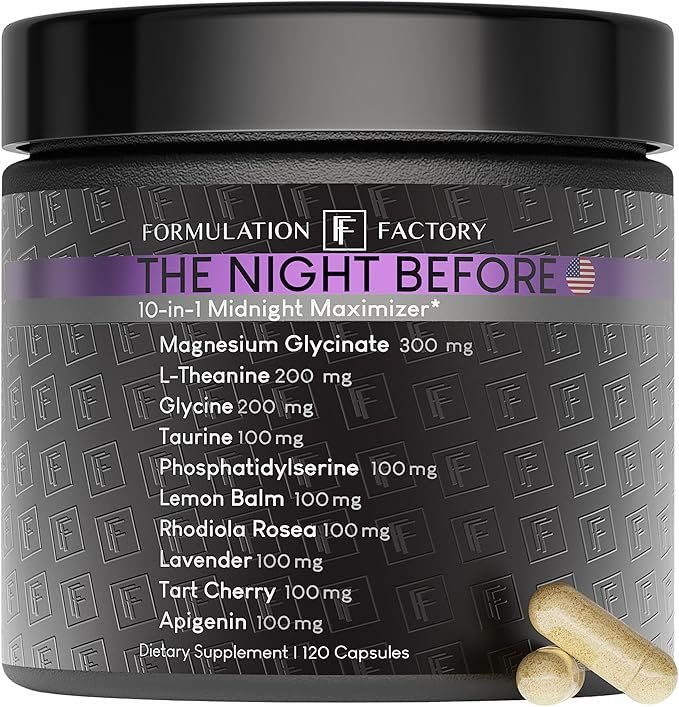
Understanding Anxiety and Sleep Disturbances
Anxiety is a complex emotional response characterized by feelings of tension, worry, and apprehension. It can manifest in various forms, such as generalized anxiety disorder, panic disorder, or social anxiety. Individuals may experience physical symptoms, including a rapid heartbeat, muscle tension, and sweating, alongside psychological symptoms like irritability and restlessness. The prevalence of anxiety disorders has increased in recent years, highlighting the importance of understanding their impact on overall quality of life.
One significant yet often overlooked aspect of anxiety is its correlation with sleep disturbances. Research indicates that individuals suffering from anxiety are more likely to experience sleep-related issues, such as insomnia or fragmented sleep. These sleep challenges can exacerbate anxiety symptoms, creating a detrimental cycle that affects both mental and physical health. Anxiety can hinder the ability to fall asleep, maintain sleep, and achieve restful sleep, further contributing to a decline in well-being.
The physiological mechanisms at play include elevated cortisol levels, altered neurotransmitter activity, and heightened arousal systems that keep the mind in a state of hyper-vigilance. Psychologically, anxious thoughts can lead to rumination at night, making it difficult for individuals to relax and unwind. Factors such as lifestyle choices, stressful life events, and health conditions may further influence the relationship between anxiety and sleep, making it vital for individuals to address both concerns.
Understanding this intricate relationship between anxiety and sleep is essential for effective management. Implementing strategies to mitigate anxiety not only improves mental health but also promotes healthier sleep patterns. In exploring top supplement picks for managing anxiety and improving sleep, individuals can find valuable tools to break the cycle of distress and enhance their overall well-being.
Benefits of Supplements for Anxiety and Sleep
In recent years, supplements have garnered attention for their potential role in managing anxiety and improving sleep quality. As individuals seek natural alternatives or complementary approaches to conventional treatments, various vitamins, minerals, and herbal extracts have emerged as viable options. Research has shown that certain supplements can alleviate symptoms of anxiety and enhance sleep, offering a natural remedy for individuals seeking relief.
Magnesium, for example, is a mineral that plays a crucial role in regulating neurotransmitters that promote calmness. Studies indicate that magnesium supplementation can significantly reduce anxiety levels, making it a worthy consideration for those dealing with stress. Moreover, magnesium has been linked to improved sleep quality, as it helps to relax muscles and regulate sleep cycles.
Similarly, omega-3 fatty acids, commonly found in fish oil, have been associated with reduced anxiety symptoms. The anti-inflammatory properties of omega-3s may also contribute to better sleep, as chronic inflammation is often linked to sleep disturbances. Incorporating such supplements into one’s diet can offer a dual benefit of managing anxiety while promoting restorative sleep.
Herbal extracts, such as ashwagandha and valerian root, have also gained popularity for their calming properties. Ashwagandha has been shown to lower cortisol levels, a hormone associated with stress, thus aiding in anxiety management. Valerian root, on the other hand, is renowned for its sedative effects and is frequently used as a natural sleep aid. These herbal supplements can play a vital role in a holistic approach to mental health when integrated with lifestyle changes and sleep hygiene practices.
In conclusion, the benefits of supplements for managing anxiety and improving sleep quality are supported by various studies. By incorporating top supplement picks for managing anxiety and improving sleep, individuals may find an effective pathway to enhancing their mental well-being and achieving better sleep hygiene.
Top Supplements to Consider
Anxiety management and sleep improvement are critical aspects of overall mental health and well-being. Below, we present several top supplement picks for managing anxiety and improving sleep. Each supplement is evaluated based on its ingredients, mechanism of action, appropriate dosage, and potential side effects.
Magnesium is a mineral known for its calming properties. It plays a crucial role in neurotransmitter function and can help regulate stress hormones. A dosage of 200-400 mg daily is often recommended, but it is essential to start with lower doses to assess tolerance. Potential side effects include digestive issues, such as diarrhea, particularly at higher doses.
Shop: BIOptimizers Magnesium Breakthrough Supplement 4.0 – 7 Forms of Mg: Glycinate, Malate, Citrate, and More – Natural Support for Sleep and Cognitive Function – 60 Capsules- Calming Vitamins Complex

L-theanine, an amino acid found in tea leaves, is widely appreciated for its ability to promote relaxation without drowsiness. It enhances levels of gamma-aminobutyric acid (GABA), dopamine, and serotonin, which can alleviate anxiety and improve sleep quality. Typically, a dosage of 100-400 mg per day is advised. Side effects are rare, but some users may experience mild headaches or gastrointestinal discomfort.
Shop: Clean Nutraceuticals GABA 750mg 5 HTP 200mg L Tryptophan 500mg L Theanine 200mg Ashwagandha SAM-e L-Glycine – Mood Support Vitamins for Women and Men with L-Tyrosine 5-HTP (5-Hydroxytryptophan)

Valerian root, an herbal remedy, has been used for centuries to support sleep and reduce anxiety. Its mechanism involves increasing GABA levels, leading to a sedative effect. The recommended dosage ranges from 300-600 mg of extract up to two hours before bedtime. Side effects may include dizziness or daytime drowsiness, especially when taken in higher amounts.
Shop: Anxie-T – Stress Relief Supplement – Supports Mood & Mental Focus – Feel Calm and Relaxed – Eases Tension & Nervousness – Ashwagandha, Kava Kava, GABA & L-Theanine – 60 Capsules

Melatonin is a hormone that regulates sleep-wake cycles. It has been effectively used to improve sleep onset and quality, especially for individuals experiencing insomnia due to anxiety. A typical dosage ranges from 0.5 to 5 mg, taken 30 to 60 minutes before bedtime. Possible side effects may include grogginess, headaches, or vivid dreams.
Shop: The Night Before 10 in 1 Midnight Maximizer, Sleep Supplement, Sleep Aid, Stress Relief, Relaxation, Recovery, Magnesium Glycinate & L Theanine & more, Focus Supplement (120 Capsules – 2 Month Supply)

When selecting supplements, it is crucial to choose high-quality products backed by third-party testing. Consulting with a healthcare professional before beginning any new supplement regimen can provide personalized advice tailored to individual needs and conditions.
Implementing Supplements into Your Wellness Routine
Integrating supplements into your daily wellness routine can significantly enhance your ability to manage anxiety and improve sleep. The effectiveness of top supplement picks for managing anxiety and improving sleep can vary based on timing, delivery methods, and individual lifestyles. To begin, it is crucial to identify which supplements best suit your personal needs or preferences, which may include herbal teas, capsules, or powders.
Timing plays an essential role in maximizing the benefits of these supplements. For instance, if you are using supplements aimed at promoting relaxation, such as valerian root or magnesium, consider taking them about 30 to 60 minutes before bedtime. Conversely, daytime supplements designed to alleviate anxiety, such as ashwagandha, can be taken in the morning to help set a calm tone for the day ahead. This strategic timing can enhance their effectiveness in your overall wellness plan.
Moreover, it’s important to explore different delivery methods to determine what works best for you. Some individuals may prefer capsules for their convenience, while others might find that incorporating powdered supplements into smoothies or teas offers a more enjoyable experience. Herbal teas, in particular, can serve a dual purpose by not only delivering relaxing properties but also promoting a bedtime ritual that signals to your body it is time to wind down.
In addition to supplements, combining these with other stress-reduction techniques can further bolster your efforts to manage anxiety and improve sleep. Activities such as mindfulness meditation, regular physical exercise, and practicing good sleep hygiene are all essential components of a holistic approach. It is advisable to consult with a healthcare provider before embarking on any new supplement regimen, ensuring a safe and effective integration tailored to your specific health needs.
